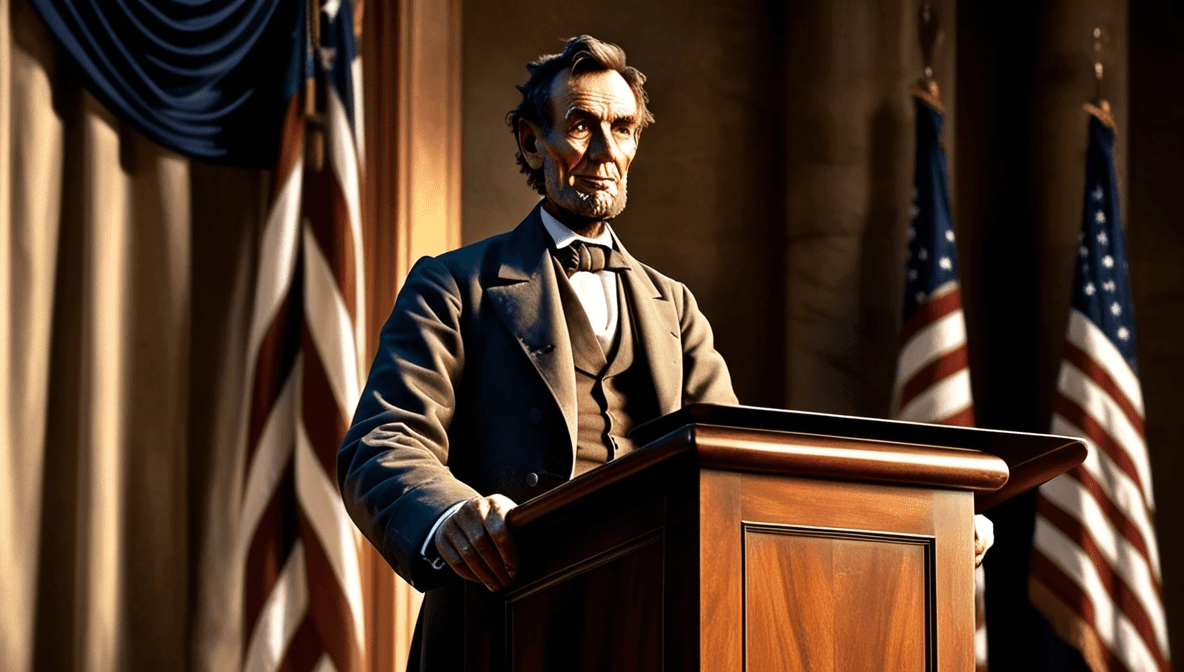5 Legendary Leaders Who Shaped History (And What We Can Learn From Them)
Jun 25, 2024
Throughout the annals of history, certain individuals have risen to the forefront, leaving an indelible mark on the world through their visionary leadership, unwavering principles, and transformative impact. From the battlefield to the political arena, these titans have inspired generations, challenged the status quo, and paved the way for monumental change. Let's delve into the stories of five such legendary leaders and uncover the secrets behind their greatness.
Julius Caesar: The Mastermind Who Reshaped an Empire
Julius Caesar is the quintessential ruler, a figure so iconic and influential that his name has become synonymous with leadership and power. A brilliant general, a cunning political strategist, and a master of manipulation, Caesar's rise to power marked the end of the Roman Republic and the birth of the mighty Roman Empire.
What set Caesar apart was his unparalleled ability to navigate the treacherous waters of ancient Roman politics. He masterfully leveraged his military prowess, forged strategic alliances, and ruthlessly eliminated his rivals, all while captivating the hearts and minds of the people. Even his dramatic demise, marked by 23 stab wounds inflicted by his own senators, only added to the legend of this larger-than-life figure.
The key lesson we can learn from Caesar is the importance of adaptability and the willingness to challenge the status quo. In a world where power structures are constantly in flux, the ability to seize opportunities, outmanoeuvre opponents, and reshape the very foundations of society can be the difference between greatness and obscurity.
George Washington: The Reluctant Revolutionary Who Shaped a Nation
While Julius Caesar's legacy is one of unbridled ambition and the consolidation of power, George Washington's greatness lies in his unwavering commitment to the ideals of democracy and his selfless devotion to the cause of liberty.
As the commanding general of the Continental Army during the American Revolution, Washington's military prowess was not particularly remarkable. However, what set him apart was his ability to hold a rag-tag army together through the darkest days of the conflict, ultimately defeating the mighty British Empire. But Washington's true greatness shone through after the war, when he could have easily seized power and declared himself monarch for life.
Instead, Washington chose to step away from the limelight, returning to his beloved Mount Vernon and setting a precedent of civilian leadership that would become the foundation of the United States. His refusal to cling to power and his dedication to the principles of republicanism cemented his status as a true icon of democracy, inspiring generations of leaders to come.
The lesson we can learn from Washington is the importance of humility, integrity, and a steadfast commitment to the greater good. In a world where power and influence can so easily corrupt, Washington's example reminds us that true leadership is not about personal aggrandizement, but about serving the people and upholding the ideals of a just and equitable society.
Napoleon Bonaparte: The Military Genius Who Conquered Europe
If George Washington's greatness was defined by his selflessness and devotion to democratic principles, then Napoleon Bonaparte's legacy is one of unparalleled military genius and an insatiable thirst for conquest.
As a young general, Napoleon's strategic brilliance and contagious enthusiasm for victory propelled him to the heights of power, as he systematically conquered much of Europe. His ability to outmaneuver his opponents, inspire his troops, and seize opportunities with lightning-fast reflexes made him a formidable force to be reckoned with.
However, Napoleon's downfall ultimately came from his own hubris and overconfidence. After being deposed and exiled to the island of Elba, he staged a dramatic return, rallying his army and nearly reclaiming his throne. But the decisive defeat at the Battle of Waterloo put an end to his ambitions, and this time the British took no chances, exiling him to a remote island off the coast of Africa.
The lesson we can learn from Napoleon is the importance of balancing ambition with humility, and the dangers of unchecked power. While his military genius and strategic acumen are undeniable, his relentless pursuit of conquest ultimately led to his downfall, serving as a cautionary tale for leaders who prioritize personal glory over the well-being of their people.
Abraham Lincoln: The Unifier Who Guided a Nation Through Crisis
In a world of larger-than-life figures, Abraham Lincoln stands out as a leader whose greatness was forged in the crucible of the American Civil War. As the 16th President of the United States, Lincoln faced the daunting task of holding a divided nation together, navigating the treacherous waters of political intrigue and the horrors of a bloody conflict.
What made Lincoln a truly great leader was his unwavering integrity, his bravery in the face of adversity, and his ability to remain calm and resolute in the midst of the storm. Despite the immense pressure and the weight of the nation's future resting on his shoulders, Lincoln never wavered in his commitment to the ideals of the Declaration of Independence and the Constitution.
But Lincoln's greatness extended beyond his role as a wartime leader. His eloquence and oratory skills, exemplified in iconic speeches like the Gettysburg Address, inspired generations of Americans and cemented his legacy as a champion of freedom and equality. Even in the face of his own tragic demise, Lincoln's legacy lived on, as he helped guide the nation through the darkest chapter of its history and laid the foundation for a more just and united future.
The lesson we can learn from Abraham Lincoln is the power of integrity, courage, and a steadfast belief in the principles of democracy. In a world that often rewards ruthlessness and self-interest, Lincoln's example reminds us that true leadership is about putting the needs of the people above personal ambition, and using the power of the office to uplift and empower the disenfranchised.
Mahatma Gandhi: The Apostle of Non-Violence Who Toppled an Empire
In a world dominated by the might of armies and the ruthless exercise of power, Mahatma Gandhi's rise to prominence stands as a testament to the transformative power of non-violence and the unwavering strength of the human spirit.
As the leader of India's independence movement, Gandhi faced the daunting task of challenging the might of the British Empire, a global superpower that had subjugated the Indian subcontinent for centuries. Yet, armed with nothing more than his principles of non-violence, civil disobedience, and peaceful protest, Gandhi managed to inspire a nation and ultimately topple the colonial regime.
What made Gandhi a truly legendary leader was his absolute commitment to his ideals, even in the face of overwhelming adversity. He refused to be cowed by the brutality of the British authorities, instead using his moral authority and the power of passive resistance to rally the masses and capture the world's attention. Gandhi's message of non-violence and his belief in the inherent dignity of all human beings resonated across the globe, inspiring countless individuals and movements to follow in his footsteps.
The lesson we can learn from Mahatma Gandhi is the transformative power of moral leadership and the ability of the human spirit to overcome even the most daunting of obstacles. In a world that often celebrates the use of force and the accumulation of power, Gandhi's example reminds us that true change can be achieved through the power of compassion, empathy, and a steadfast commitment to the principles of justice and equality.
Unlocking the Secrets of Legendary Leadership
As we've seen, the pantheon of great leaders throughout history is a diverse and multifaceted one, each figure offering unique insights and lessons that can inspire and guide us in our own pursuits. Whether it's the strategic brilliance of Julius Caesar, the unwavering principles of George Washington, the military genius of Napoleon Bonaparte, the unifying vision of Abraham Lincoln, or the transformative power of Mahatma Gandhi, these legendary leaders have left an indelible mark on the world.
By studying their lives, their triumphs, and their challenges, we can unlock the secrets of what truly makes a great leader and apply those lessons to our own personal and professional endeavors. So, the next time you find yourself in a position of influence, remember the examples set by these titans of history, and strive to emulate their qualities of vision, integrity, and a steadfast commitment to the greater good.





